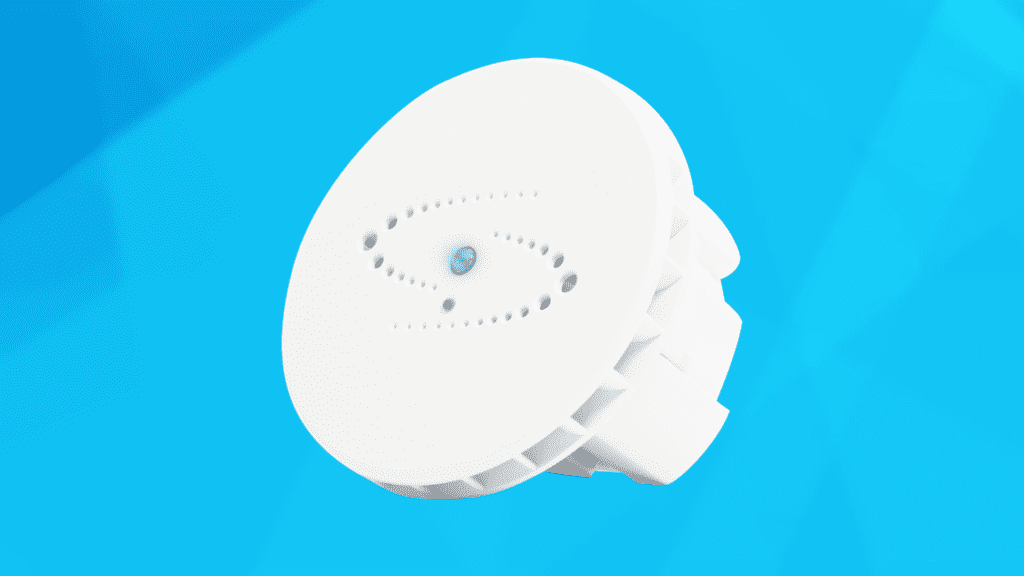Customer: St Joseph’s College
Location: Stoke-on-Trent, Staffordshire
Requirement: The school was finding that there was an increase in incidents of vaping in their toilets. These incidents were difficult to prove and staff were unable able to respond in a timely way.
Solution: Supply of the Halo Smart Sensors, which included pre-staging the devices so they were ready to plug and play on arrival. Advice on installation and how to use the devices once installed.
Services: Ecl-ips supplied 7 x Halo Smart Sensors, manufactured in the USA by IPVideo Corporation
Customer’s View:
“I had dithered about it for over 12 months due to the cost but it has been transformational for us. We started with only 2 devices in our worst areas and have now ordered another 5 to go into more toilets.”
St Joseph’s College is a Catholic Grammar School providing education to 11–18-year-olds in Stoke-on-Trent. It is part of the Edmund Rice Network of schools, which are all inspired by the Catholic educationalist’s teachings. Like many secondary schools, St Joseph’s College has recently experienced more of its students vaping and being prepared to vape within the school itself, principally within the toilets.
Deputy Head Teacher, Charlotte Slattery, heard about the HALO Smart sensor at a meeting with other schools about the Catholic nature of St Joseph’s. She said:
“Another school had recently had these installed and were very happy about the impact they had had. I investigated several different companies but Ecl-ips were definitely the best (not necessarily the cheapest) in terms of value for money.”
Ecl-ips has well-established expertise in data cabling and the installation of appliances that use power over ethernet (POE) for their power supply. POE has the advantage of delivering data and power over one Cat5 or Cat6 ethernet cable.
This means Ecl-ips can carry out all the installation, including data cabling; just install the HALO Smart Sensors or we can supply the devices and support customers remotely if required. At St Joseph’s they chose to install the devices themselves as they had the expertise to complete any cabling needed and we were able to support them with queries as required.
Describing the installation Charlotte said:
“Once I got my head around how the devices were installed it was really very easy. Ecl-ips were always on hand to answer my very untechnical questions. We needed a little cabling for a couple of the sensors due to the location of the toilets, but this was very quickly done. The devices themselves are super quick and easy to install.”
The school started with two devices that were placed in toilets that Charlotte said were believed to be more of a hot spot for vaping and where they wanted to focus on initially. After this five more HALO Smart Sensors were ordered. A team of teaching and non-teaching of staff receive the alerts from the HALO and are able to respond immediately to vaping incidents. In the first week of the devices being installed at the school they had repeated alerts and the staff were very busy. However, this then decreased week on week.
“I would advise having a team of people (including non-teaching staff) who can respond. We also have CCTV showing the entrance to the toilets – this has also been very useful for the times when students have left before we have arrived.”
As demonstrated at St Joseph’s College the HALO Smart Sensor can be installed discreetly in private areas such as changing rooms and toilets where students may feel able to vape.
Additionally, the HALO detects aggression through monitoring abnormal noise levels and recognised keywords that are used for calls for help. This could be a particular benefit within schools where anti-social behaviour may be a problem.
Charlotte said she would recommend the HALO Smart Sensor to: “Any schools who are struggling to get on top of vaping in schools, or indeed aggression in the toilets.”
Result: By the end of the first half-term after the installation, the school reported that it had had weeks with no vape detection alerts at all.
Benefits:
“Being able to identify students who are vaping has also allowed us to have much more meaningful conversations with our young people about the dangers of vaping and garner support from parents. This is helping us to have open dialogue with students that we hope will become more of a proactive message, in time, rather than a reactive one.”
Download a copy of the St Joseph’s College Case Study PDF



